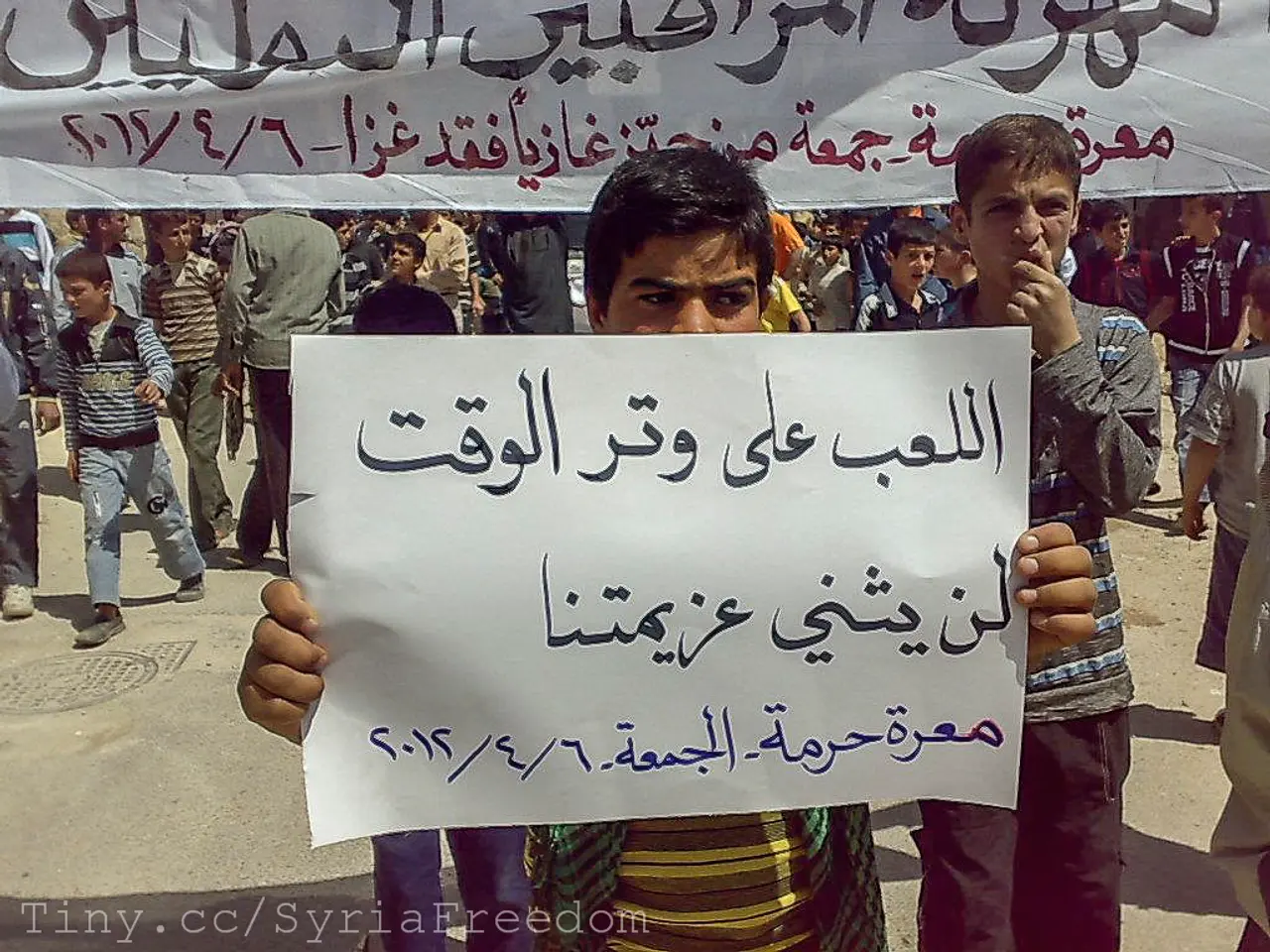More than 365 individuals detained in London for backing a Palestinian group classified as illegal
UK Cracks Down on Palestine Action: Protests, Arrests, and Human Rights Concerns
In a controversial move, the UK government proscribed the group Palestine Action under the Terrorism Act of 2000 on 5 July 2025, making membership or support a criminal offence punishable by up to 14 years in prison. This decision has sparked significant debate and criticism, with concerns raised about the broad UK terrorism definition and potential threats to freedom of speech and protest rights.
The proscription came after Palestine Action activists vandalised military aircraft at RAF Brize Norton, a military airfield, which was considered serious damage to property linked to national security. However, critics, including Amnesty International, Liberty, and the UN Human Rights Chief Volker Türk, argue that the UK’s terrorism definition is overly broad, and the proscription misapplies anti-terrorism laws to acts that do not meet international standards for terrorism.
On August 9th, hundreds of people gathered for a demonstration in Parliament Square, organised by Defend Our Juries, to voice their opposition to the government's decision. Demonstrators held signs reading "I oppose genocide, I support Palestine Action" during a silent period from 1 pm to 2 pm. However, the police warned that all those waving placards in support of the proscribed group were either arrested or in the process of being detained.
The consequences of supporting Palestine Action in the UK now include it being a criminal offence to be a member of or support the group, public expressions of support, or displaying related symbols or slogans. People have been arrested for demonstrating in support of the group, with over 460 arrests reported in London and others in cities like Norwich. Reports suggest that the police have been unable to arrest a significant number of those supposedly committing "terrorism" offences, and most have been given street bail and allowed to go home.
The heavy-handed police enforcement actions have raised concerns from the UK Equality and Human Rights Commission about potential disproportionate police response undermining democratic rights of peaceful protest. Wearing items or holding signs deemed to show support for the group can lead to charges under terrorism legislation.
Amnesty International has spoken out against the UK terrorism law, criticising it for being excessively broad and vaguely worded, and a threat to freedom of expression. They have also stated that the protesters in Parliament Square were not inciting violence and that treating them as terrorists is disproportionate and absurd. The spokesperson for Defend Our Juries expressed the public's repulsion and shame about the government's complicity in a livestreamed genocide.
Two women arrested during the demonstration, one in her mid-70s, expressed support for Palestine Action and disagreed with the government's classification of their actions as terrorism. One of the arrested women stated that the vandalism of RAF aircraft was a "protest action, it's not at all terrorism". A protester accused the UK planes of being "terrorists" because they were going over and shooting and killing children.
In summary, the proscription of Palestine Action and the wide-ranging legal consequences for supporters have triggered significant human rights and free speech concerns domestically and internationally. The UK government's crackdown on the group raises debates about the balance between security and civil liberties.
In light of the crackdown on Palestine Action, there has been a peak in discussions surrounding general news, politics, and crime and justice. Amnesty International and the UN Human Rights Chief Volker Türk, among others, have voiced concerns about the broad UK terrorism definition and its potential impact on freedom of speech and protest rights. Moreover, the arrests of hundreds of protesters, including the elderly, who support Palestine Action have amplified these debates, causing international scrutiny and questioning the balance between security and civil liberties.






